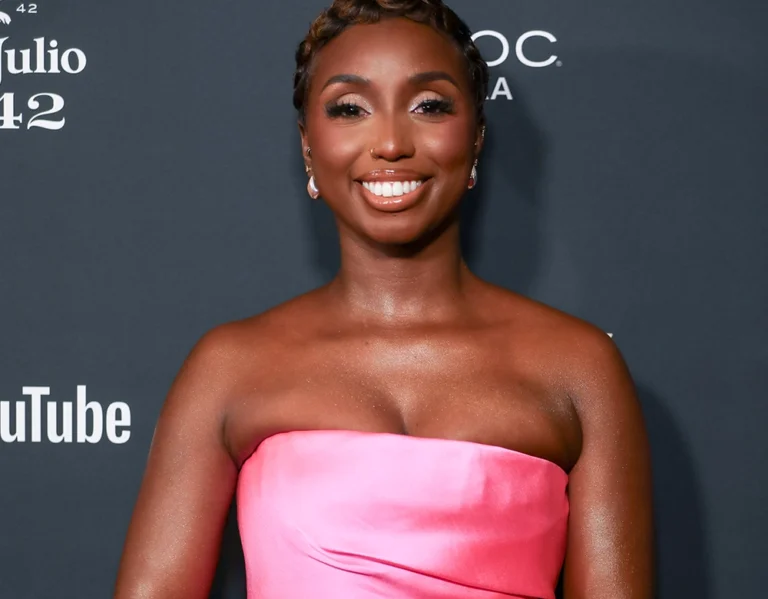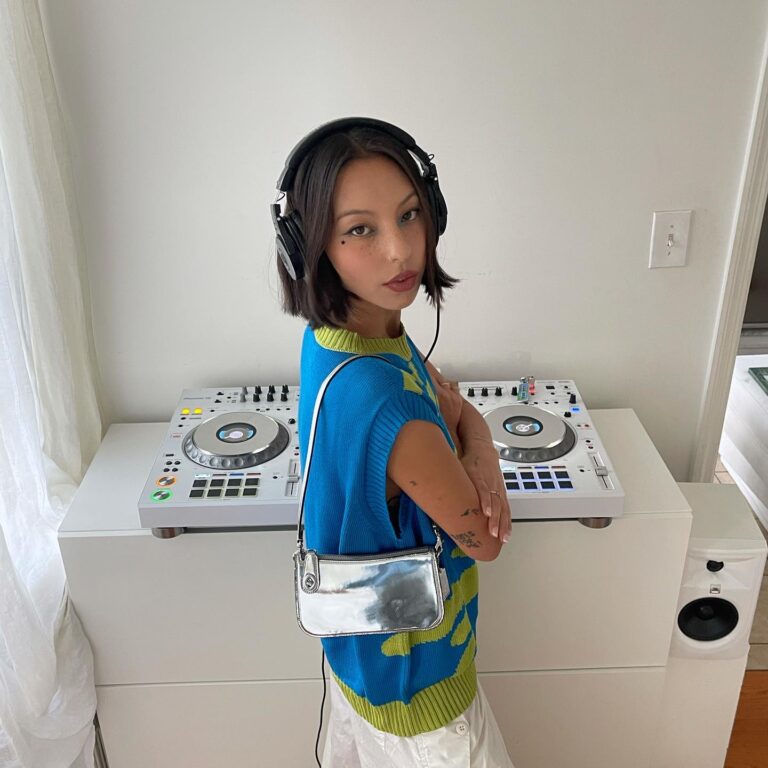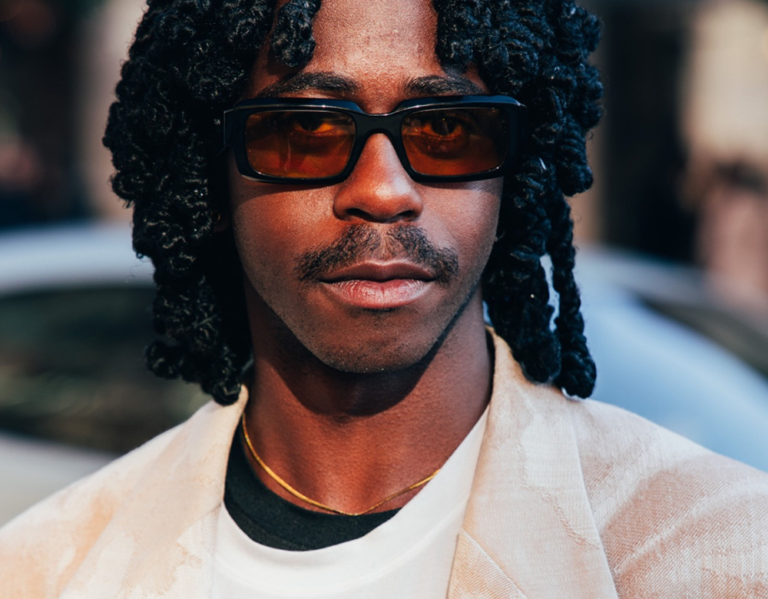Michael Adex, Chief Executive Officer of NQ, Manchester

Hey Adex, can you introduce yourself for us?
My name’s Michael Adex, although I’m mostly known and referred to as Adex. I am a 27-year-old creative entrepreneur from Manchester specialising in music. I started my journey through founding a company called NQ, which is a 360 Talent and Entertainment company. We’re now in our sixth year.
We’ve come a long way from when we started. I set up the company to try and help creatives from the North [of England] get an opportunity to see out their talents and build a career for themselves. Over the last few years we have really grown out into different facets of the music business. We started with management and then expanded into the record label and publishing side… Six years later, we’ve got a host of artists and producers that are signed to us that we work with. I’ve also helped them get into things that they’re passionate about, so we’ve done a lot of film and TV projects, alongside releasing albums and campaigns and working with brands. A lot of touchpoints within the entertainment industry, which has been a real godsend in regards to my journey and my education in both the music business but also further afield.
How did you come about creating and developing NQ?
It happened quite naturally. I’ve always been really into my music and it was during the time when discovery platforms like SoundCloud and mixtape websites were really active. I was discovering a lot of underground talents that were at the forefront of the music scene at that time, and I realised I had an ear for talent that would go on to become bigger. With that, I was able to establish a lot of relationships early on that then would blossom into something that I could utilise, and to create relationships with people that were really impactful within the music industry at that time. I was doing research on the people I was meeting and then I decided to start my own business off the back of that.
One of the first musicians that you managed was Aitch, right?
Yes, yes. Technically I managed another artist at the same time, Samurai. Aitch is from the same area of North Manchester, so I picked them up at the same time. But yeah, managing Aitch was definitely a big part of the start of my career.
"I realised I had an ear for talent that would go on to become bigger."

How did you come about discovering him? Or musicians in general that you went on to manage?
I was just kind of galavanting around the city and going around the UK going on nights out, open mics, stuff like that. During that era underground music was very much leaning towards grime, so a lot of grime sets and open mic nights were happening inside Manchester. At the time Aitch was really young, like 16 or 17, but he always stood out amongst the room, despite other people being older or like twice the size of him. He was holding his own and has always been very gifted in terms of his ability and his flow. That’s how I first found out about him. From there the relationships grew naturally, from him asking my advice to working together properly.
So, regarding your education – did you take any formal route to music?
In my past life my real ambition was to play football, so up until 18 that was what I was doing. I did go to college but it was a college for footballers. My passion for music ran throughout that period anyway, and there’s a lot of synergy with football and music, as we see now. After football I went to uni for two years but I didn’t finish, unfortunately.
"You can learn things in theory and understand things in theory but until you do it it's still just theory."
What do you think were some of the most difficult lessons to get your head around within the music space, considering you didn’t study music or management?
You know, I think that you can learn things in theory and understand things in theory but until you do it it’s still just theory. I think that’s where I really shine because I’m very confident when it comes to trusting my instinct, in the sense of reading between the lines. There’s the education in terms of what I’ve learnt from a theory perspective, but then I also have the ability to really look at how someone’s speaking about situations and using other educational formats that may not be as formal to learn. I think that reading interviews, listening to podcasts and listening to stories of people’s experiences combined with having confidence have really helped me. And within a conversation it’s about believing in what your interpretation is and backing yourself.
In regards to your current role at NQ, what would you say are some of the biggest challenges that you face?
I think it’s a challenge that everyone is facing in this day and age, but music is an ever-changing landscape that’s moving increasingly rapidly. Especially in the UK with the economic issues we’re having, there has been a big change in regards to how music works. The processes have completely changed. Some things have changed for the better in terms of giving people opportunities, with social media and all these different apps, and even just the ease and affordability of making music now. It’s also so easy to release music. However, this also makes it harder to stand out and build and maintain relevance. Attention spans in general are just a lot more limited, so whatever content you’re creating, it’s easier to make it and get it published but it’s a real challenge to cut through the landscape. There’s so much competition.
Do you work with any musicians who struggle with this new way of engagement and having to push their music in ways that they may not have thought they would?
I think most musicians are struggling with it, especially if it’s not native to you and you’re not used to being able to adapt quickly. You could be 18-years-old today and get it, but three years later the social media you were using to push your music is obsolete and you’ve gotta adapt. You become older quicker in this day and age because everything is changing and adapting a lot quicker and not everyone is able to adapt that quick and put themselves in new environments and adjust, understand and activate it.
'I enjoy winning. I enjoy success."
What do you enjoy most about your job and the industry as a whole?
I enjoy winning. I enjoy success. I enjoy being able to make things happen. I have many interests. When I started within music it was with the intention of building something and building it in a different way, where it didn’t focus solely on the music. I would look at opportunities and things that I could make happen and I did it. That’s something that I’ve always found joy in – utilising my connections to activate and build something out of that. We just launched a flavoured fizzy water brand and that’s not something that’s within the music remit, but it’s something that I saw an opportunity, synergy and gap around… So why not do it?
You can take so many elements from the business side of your music company and implement that into any space.
Exactly. There’s just no rules now and you can do whatever you want.
What qualities do you think would make someone a strong candidate to be in your position, in regards to the music industry and getting to a similar position to yourself?
You have to be on it man. You have to be relentless, you have to be on the ground. You’ve gotta be a people person because ultimately this is a people business. You know what they say – that the way you come up is the way you come down. It’s important that you’re able to maintain relationships and do things right, even if it’s giving disappointing news. It’s about respect and just not wasting people’s time. Again, with an ever changing industry you’ve gotta be open to learning, thinking of different ways of doing things and be open to listen to others. You can’t be afraid.
What advice do you have for anyone who is interested in your field of work?
I would say just do your research and be a real student of the game. Thinking outside the box. Do what you think is best. You know, I think a lot of the time people can be guilty of looking up to people too much, and in this ever-changing landscape I may only know as much as the next person because I’m finding out at the same time as you are. Ultimately, yes, there’s experience you can draw on, but believe in your ways of thinking as well and be open minded whilst listening and taking advice. You gotta go for it and be 100% about what you’re doing in terms of commitment to it, because I see a lot of people wanting to get into these situations just to be able to be in the cool club or whatever they think it is. This is a business, it’s a job, it’s a commitment, so take it seriously. It’s also a privilege to work in music and entertainment because I mean I’d rather be doing this than a lot of other things. I’m very privileged to be able to do it and I don’t take that for granted, so with that said it’s about taking your job seriously and being able to deliver on what you say. Lastly, I would say to just have fun and enjoy the journey.
LATEST THAT MAY INTEREST YOU





